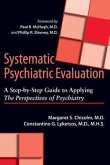A systematic review was carried out to investigate the effectiveness of the Stepping Stones (SS) intervention programme to reduce the spread of HIV/AIDS. Web of Science, the Cochrane Library, PubMed/MEDLINE, and other databases were systematically searched for studies using randomized or cross-sectional designs with biomedical and/or behavioural outcomes. Both qualitative and quantitative review techniques were used. Eight studies were identified for inclusion in the quantitative part of the review, and ten studies were included in the qualitative part of the review. RCT analysis showed a significant impact of the Stepping Stones intervention on HSV-2 incidence. All studies showed that the SS programme proved to be effective in changing self-reported risky behaviour and in improving communications and relationship skills. A new type of HIV/AIDS prevention interventions need to address both the biological and behavioural factors associated with biological transmission as well as with social and structured factors. Ongoing studies could determine the place of the Stepping Stones intervention programme in such a strategic alliance.
Bitte wählen Sie Ihr Anliegen aus.
Rechnungen
Retourenschein anfordern
Bestellstatus
Storno








